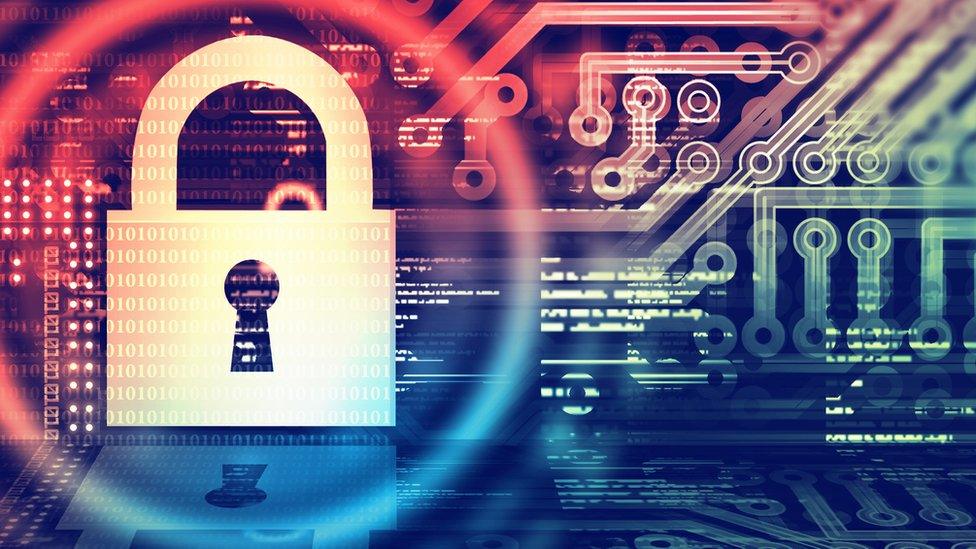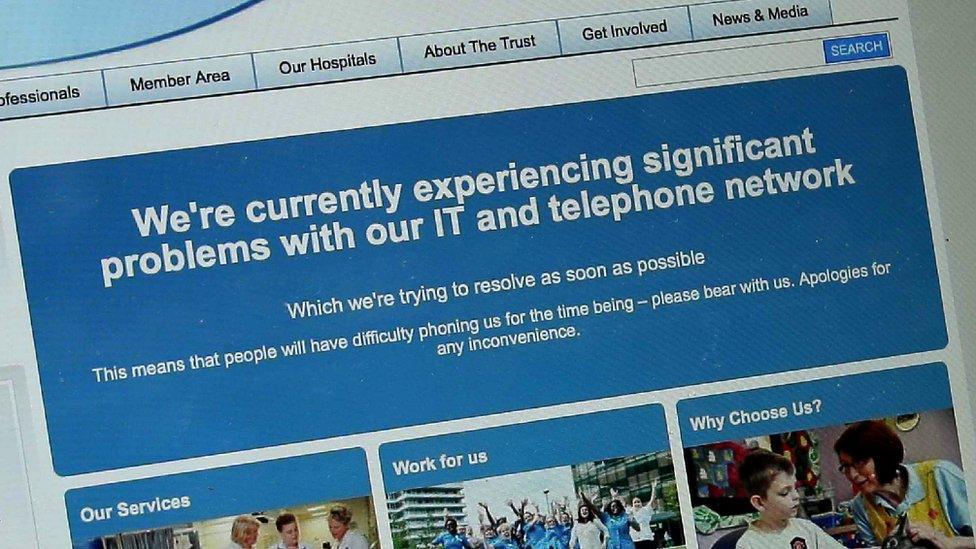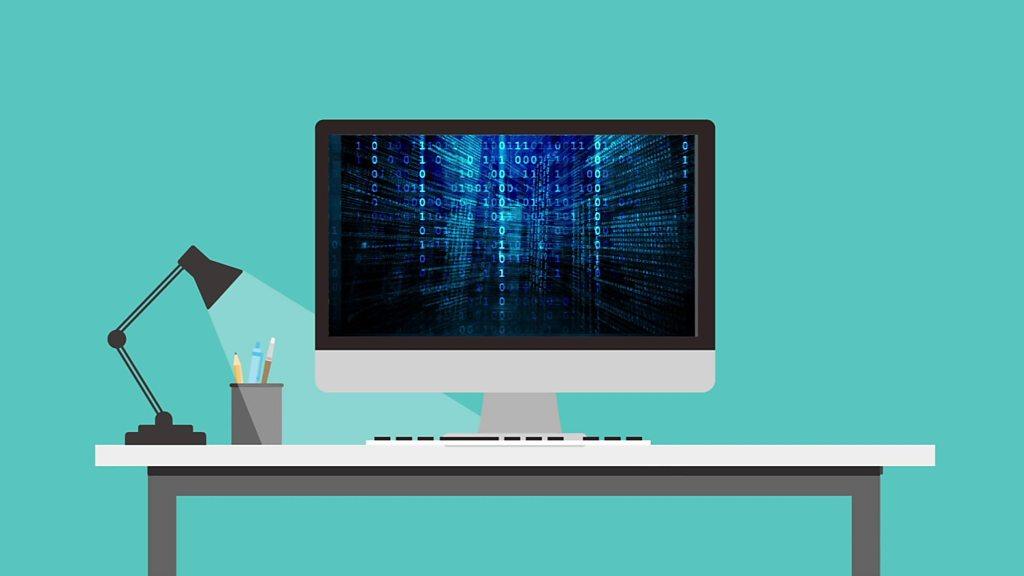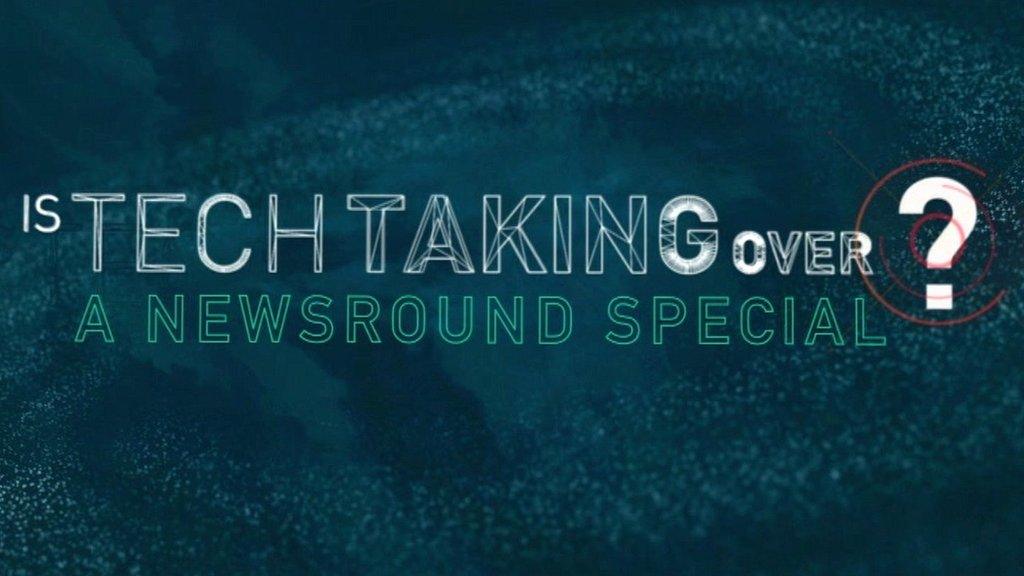What is hacking?
- Published

At the end of last week, criminals carried out a serious hacking attack, which affected countries all over the world.
The cyber attack saw a harmful computer programme spread to about 150 countries, including the UK, Spain, Russia, the US and China.
The program - which is called WannaCry - has caused chaos for many organisations.
But the actions of a 22-year-old called Marcus - a UK security researcher who has his own company - helped to limit the damage.
He's being called an "accidental hero" after registering a domain name to track the spread of the virus, which actually ended up stopping it from spreading.
Hacking hero who saved UK from cyber attack
Computer software that is designed to block people from their computers, and make them pay money if they want to get back into them, is known asransomware
The Wannacry programme worked by locking down computer systems and demanding that people paid money in order to be able to get back into their system.
In the UK the computer systems of hospitals and doctors surgeries were the most affected by the attack.
Some hospitals had to cancel treatment and appointments, while many doctors were forced to use pens and paper to do their jobs, as their computers weren't working.
But why do people carry out attacks like this? And is hacking always a bad thing?

This picture shows how the harmful computer programme also affected trains at Frankfurt's main station in Germany

What is hacking?
Computer software that is designed to damage, disrupt something or break into a computer system when it's not allowed is called malware
Hacking is when someone breaks into a computer system.
They break in by going around the usual security, like passwords, and getting in to the computer system via a different route to the official one.
It's a bit like breaking into a house, but finding a different way in other than the front door.
Criminals carry out hacking attacks against businesses or organisations because they want to break into a company's computer systems to cause trouble.

This picture shows an NHS website telling people that they were experiencing problems with their systems
For example, they might want to steal information about customers or to stop an organisation from being able to run properly.
The fact that so many companies all around the world are on the internet makes it easier for hackers to break into systems like this, as so many people are now connected online.
A lot more information is also stored electronically than it used to be.

What is the effect of hacking?
Hacking can have a devastating effect on a company.
Time is lost as the company try to fix their systems and websites
The organisation's reputation is damaged, as it shows their systems are maybe not very safe
They might lose customers if people stop trusting the company and decide not to use their services anymore
Important or sensitive information about customers could be stolen
Companies might be forced to pay money in order to get back into their computers - and once they've paid the money, the criminals might not even let them back into their system anyway

Is hacking always a crime?
When hacking is used for harmful reasons such as above, then it is a criminal offence and against the law.

There is a law which makes it illegal to carry out attacks like the one that happened on Friday
However, knowing how to hack a computer system is not a crime - and you can use those skills in a positive way.
Many companies will employ people who know how to hack and ask them to deliberately try to break into their systems. This helps companies to know if their security is good enough and see where there are problems.
A cyber crime is a crime that is carried out using computers and / or the internet
For example, it's a bit like having somebody come to look at your house to tell you which windows need better locks so your house is more secure.
Those who know how to hack are also needed in order to stop hacking attacks. For example, the attack that happened last week was stopped by a 22-year-old cybersecurity researcher, because he had hacking knowledge.
So it can be used for good things too.
For more advice and information about staying safe online, click here.
- Published16 May 2017

- Published13 May 2017

- Published21 March 2016

- Published3 January 2017

